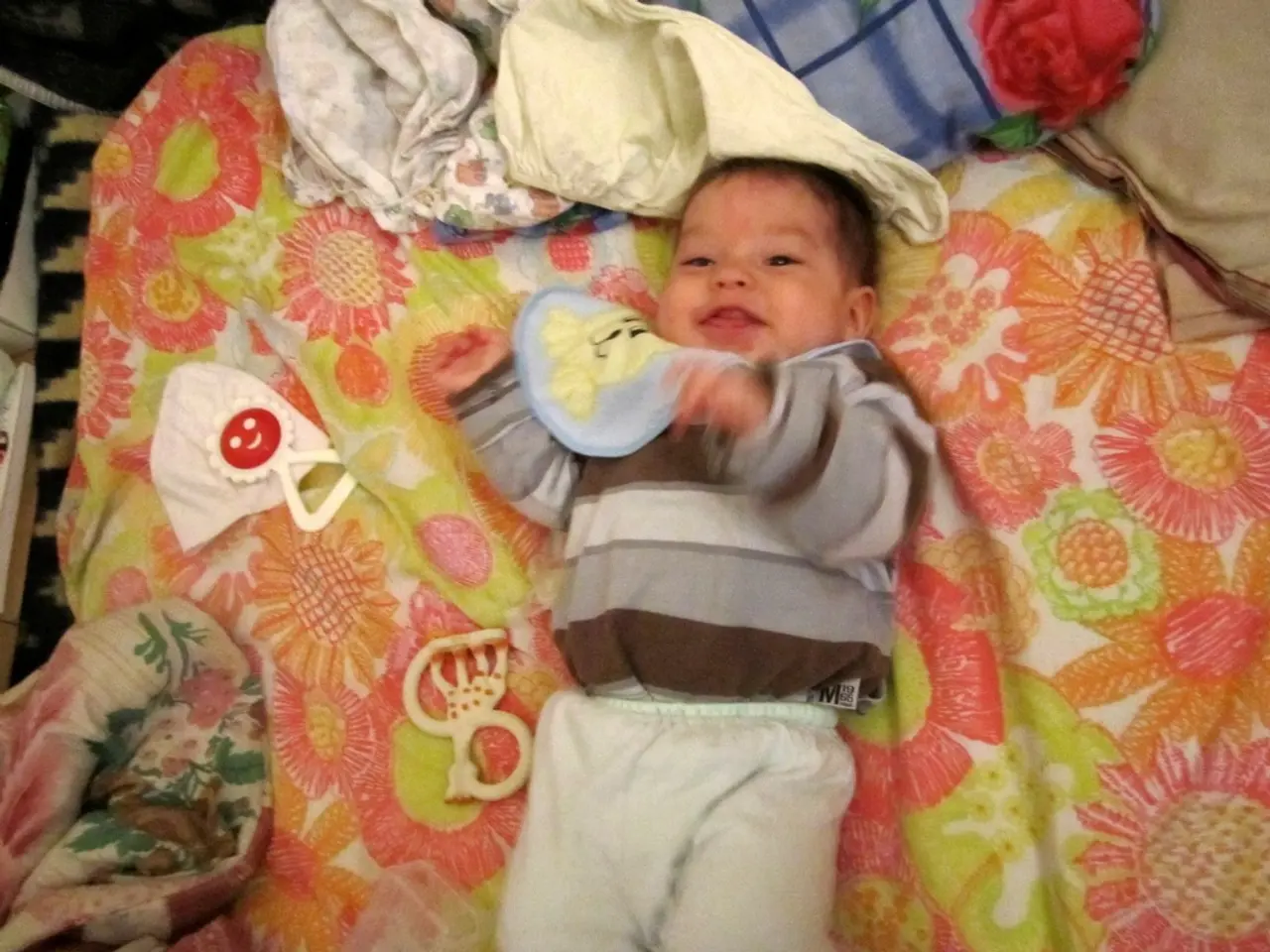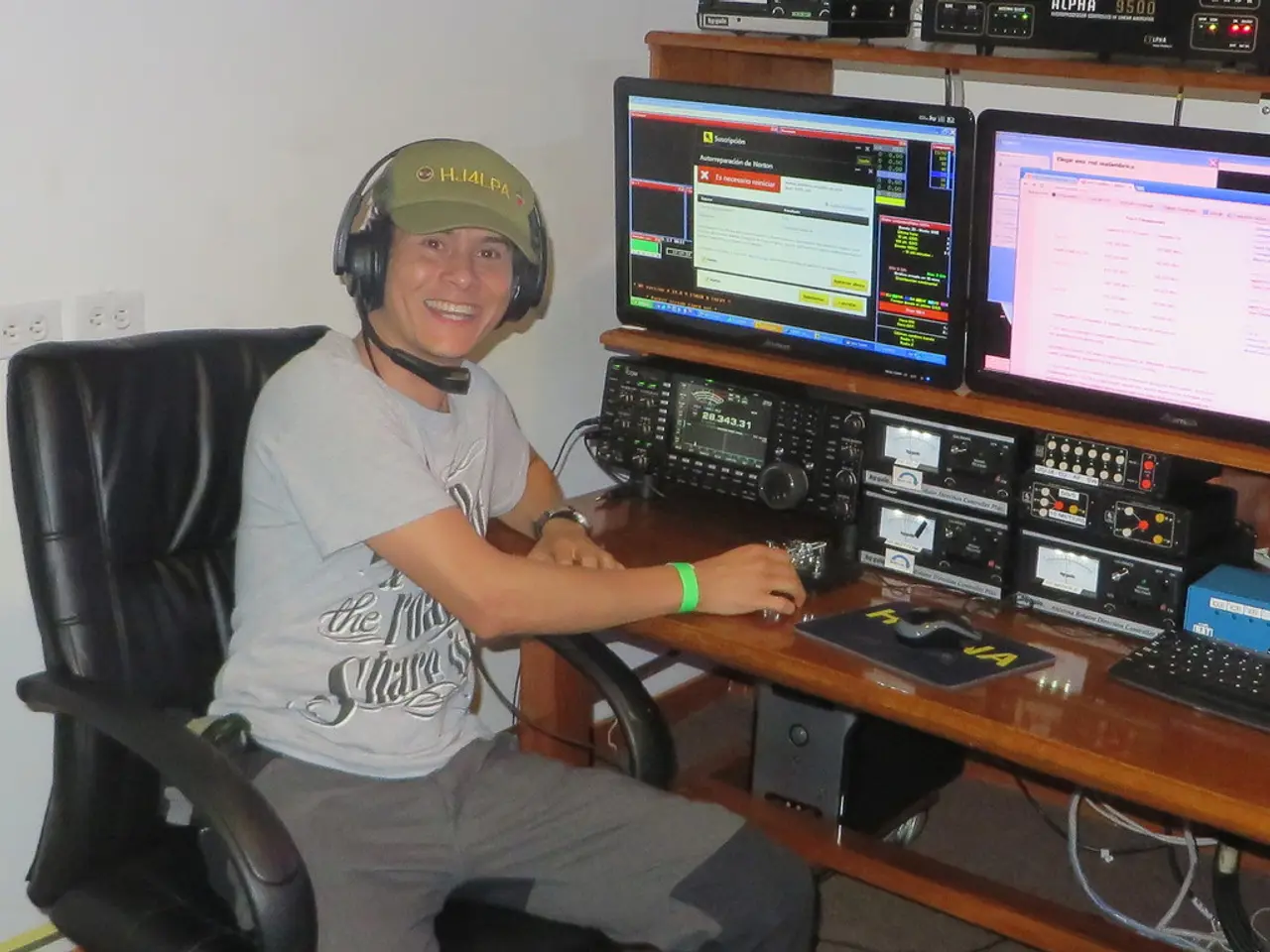Preparing Your Home After Neonatal Intensive Care Unit Discharge
In the journey of parenthood, the transition from a Neonatal Intensive Care Unit (NICU) to a home environment can be a significant milestone. To ensure a safe, supportive, and nurturing environment for your baby after a NICU stay, consider the following best practices:
## Practical Preparations
### Safety and Comfort
- Ensure the car seat is properly installed and certified for the baby's weight and age, with a certified technician checking it before bringing the baby home. - Create a safe sleep environment by providing a firm, flat surface free of soft bedding and loose items, keeping the crib in the same room as the baby's caregiver but not in the same bed. - Maintain a comfortable temperature and adjust lighting levels to minimize unnecessary stimulation.
### Essential Items
- Bring a going-home outfit, socks, and booties for the baby. - Have diapers, wipes, and a pediatrician-approved bathtub ready. - If not breastfeeding, have bottles and formula ready. If breastfeeding, ensure a comfortable feeding area. - Have any prescribed medications and equipment ready.
### Hygiene and Cleaning
- Regularly disinfect surfaces and toys to prevent infection. - Use a HEPA air purifier to maintain clean air.
## Emotional and Supportive Preparations
### Emotional Support
- Consider seeking professional counseling to cope with the emotional rollercoaster of having a NICU baby. - Establish a strong support network of family, friends, and healthcare professionals.
### Lifestyle Adjustments
- Plan for sleep adjustments to accommodate the baby's needs. - Prepare meals in advance to ensure ease during the initial adjustment period. - Take time for self-care activities to maintain emotional well-being.
## Medical and Professional Preparations
### Follow-Up Care
- Schedule follow-up appointments with the pediatrician to monitor the baby's health. - Discuss the possibility of home nursing visits if necessary.
### Safety Checks
- Conduct a home safety audit to ensure all hazards are removed or secured.
By focusing on these areas, you can create a safe, supportive, and nurturing environment for your baby after a NICU stay. Seek professional help if needed, and planning for regular medical check-ups and therapies is crucial after leaving the NICU to monitor the baby's growth and address any concerns promptly.
Assessing and preparing the home environment for a baby who has graduated from the NICU requires careful consideration of their specific needs, potential hazards, and overall comfort. It's essential to familiarize yourself with your baby's medical needs, feeding schedule, and any prescribed medications after NICU discharge.
Remember, setting up a feeding and sleeping routine accommodates your baby's specific needs and promotes overall well-being and reduced stress. Building a support system is crucial for a smooth post-NICU experience. Maintaining a sterile environment is paramount for the well-being of a baby who has recently graduated from the NICU.
Balancing your well-being alongside your baby's fosters a healthy environment for the entire family. Babies in the NICU often face challenges stemming from premature birth, low birth weight, or health complications. Monitoring and adjusting temperature and humidity levels in the home is essential for the baby's comfort.
Rearranging furniture for easy movement, keeping commonly used items within easy reach, and optimizing the accessibility of your home ensure a smooth transition for both you and your baby. Providing a comfortable and supportive sleep environment, such as a crib with a firm mattress and fitted sheets, promotes healthy sleep patterns.
Establishing a consistent schedule for the baby helps provide a sense of predictability, offering comfort to both the parents and the baby. Creating a designated space for feeding, diaper changes, and sleep is necessary to accommodate your baby's needs at home.
Schedule regular breaks, prioritize rest, and engage in activities that bring joy. Choosing calming colors and decorations, such as soft pastel tones, soothing artwork, and blackout curtains, creates a serene atmosphere for the baby.
Removing small objects, choking hazards, and toxins from the baby's reach is crucial to maintain a safe environment. Installing necessary assistive devices, such as specialized cribs, changing tables, or supportive seating arrangements, is essential for babies with unique needs.
Implement proper hand hygiene measures. The Neonatal Intensive Care Unit (NICU) is a specialized medical unit that provides critical care for newborns who require intensive medical attention. Regular check-ups, vaccinations, and following medical recommendations contribute significantly to your baby's continued well-being.
Joining support groups or online communities can contribute significantly to the emotional well-being of parents. Creating a calm and quiet space for the baby's rest and sleep is important, as loud noises or disturbances can disrupt their well-being.
By following these guidelines, parents can create a safe, loving, and nurturing environment for their baby after a NICU stay, ensuring a smooth transition into family life.
- To ensure a safe car ride for your baby, have the car seat properly installed and certified for their weight and age, with a certified technician verifying the setup before bringing them home from the hospital.
- In the process of parenting a baby that has recently transitioned from a NICU, it is crucial to create a safe sleep environment by providing a firm, flat surface in the crib that is free of soft bedding and loose items.
- To maintain a clean and healthy living space for your baby, regularly disinfect surfaces and toys, and use a HEPA air purifier to prevent the spread of germs.
- In addition to safety, providing emotional support is essential for your baby's well-being; consider seeking counseling for yourself if needed and building a strong network of family, friends, and healthcare professionals.
- To make the transition easier, plan to adjust your lifestyle by preparing meals in advance, taking time for self-care activities, and establishing a sleep schedule for the family that accommodates your baby's needs.
- Schedule regular follow-up appointments with the pediatrician to monitor your baby's health and discuss the possibility of home nursing visits if necessary after leaving the NICU.
- To create an environment that is conducive to your baby's mental and physical growth, focus on providing a nutrient-rich diet with a balance of proteins, fruits, vegetables, whole grains, and healthy fats.
- Establishing an educational routine that prioritizes learning, playtime, and creative activities will support your baby's cognitive development and overall health and wellness.




